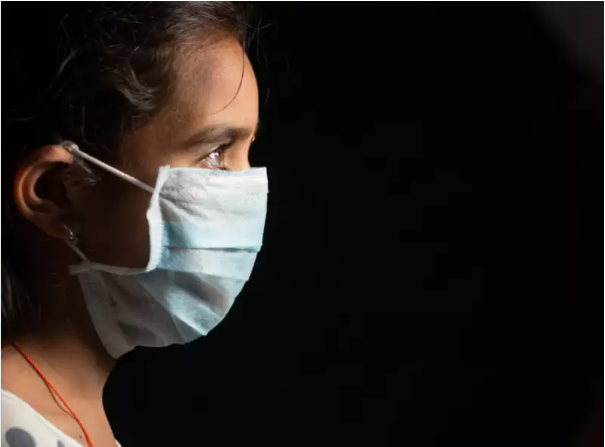Coronavirus: Delhi govt. orders to mask up; know why we need to take this seriously
While health experts are discussing the possibility of a fourth wave of COVID, the rise in the number of infection cases in the national capital Delhi has forced the administration to re-impose a mandate on wearing masks.
Within 18 days of lifting the mask mandate, Delhi saw a sharp rise in the number of cases. For the first time since 2020, the country had witnessed COVID cases below 1000 in the beginning of April. After a brief respite, the cases have again climbed up till 2,067 as on Wednesday.
On Monday, the country recorded about 90 per cent jump - the highest so far in the month -- with 2,183 cases. But with 1,247 infections reported on Tuesday, the cases saw a dip.
On March 31, the Delhi Disaster Management Authority (DDMA) had decided to do away with a fine for not wearing a mask.
What do the DDMA guidelines say?
As per sources, the DDMA meeting was chaired by lieutenant governor Anil Baijal and was attended by chief minister Arvind Kejriwal, other ministers, top bureaucrats and experts to discuss the rising cases of COVID.
In the last meeting, the Delhi government had decided to lift rules on wearing masks.
As per a TOI report, “sources said the DDMA members stressed upon aggressive testing and emphasised on wider coverage of vaccination among the eligible age groups. There will be a close monitoring on social, cultural and political gatherings. The DDMA had also decided to keep the schools open, however, a detailed standard operating procedure will be prepared by the directorate of education with the help of stakeholders and experts.”
It is expected that the DDMA will release the guidelines late evening today

Is a mask effective against COVID?
Health experts and even research studies have confirmed that wearing a mask is the golden rule to keep COVID causing coronavirus at bay. The effectiveness of the masks differ on the basis of their build and fabric, but even a clean cloth mask is able to filter away the virus to some extent, studies have shown
"...multilayer cloth masks were more effective than single-layer masks, blocking as much as 50% to 70% of exhaled small droplets and particles," says a study published in JAMA. The study adds that masks form a barrier to large respiratory droplets that could land on exposed mucous membranes of the eye, nose, and mouth. Masks can also partially filter out small droplets and particles from inhaled air. Multiple layers of fabric and fabrics with higher thread counts improve filtration.
The World Health Organisation (WHO) has always advised people on following COVID safety protocols which includes wearing masks, keeping hands clean and sanitized, and maintaining social distance.
Which other Indian states have made wearing masks compulsory in view of COVID rise?
States adjoining Delhi have made wearing masks compulsory.
The Uttar Pradesh government has made wearing masks compulsory in six NCR districts: Gautam Buddh Nagar, Ghaziabad, Hapur, Meerut, Bulandshahr, Baghpat. The government has also made it compulsory in the state capital Lucknow.
The Haryana government has also made this mandatory in 4 districts coming under the National Capital region. These four districts are Gurugram, Faridabad, Sonipat and Jhajjar.

